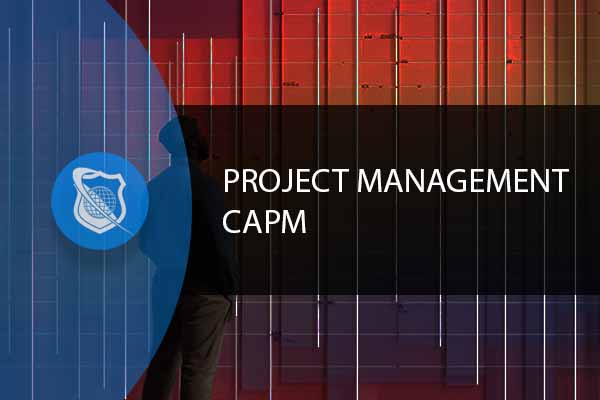What Is 3D Printing?
3D printing, also known as additive manufacturing, refers to a process of creating three-dimensional solid objects from a digital file. The creation of a 3D printed object is achieved using

CAPM vs PMP are both esteemed certifications offered by the Project Management Institute (PMI) to professionals in the field of project management. While they share a common goal of enhancing project management skills and knowledge, they cater to different levels of experience and expertise. CAPM (Certified Associate in Project Management) is designed as an entry-level certification, focusing on foundational principles, terminology, and basic practices. It’s an ideal choice for those new to project management or seeking to formalize their understanding of core concepts. On the other hand, PMP (Project Management Professional) targets experienced professionals, offering a more comprehensive and in-depth exploration of project management methodologies, tools, and techniques. It requires substantial project management experience and a deep understanding of complex concepts. The choice between CAPM and PMP depends on individual career goals, experience levels, and the depth of expertise sought. While CAPM lays the groundwork for a career in project management, PMP validates and elevates existing skills, often leading to advanced roles and opportunities. Together, these certifications provide a robust framework for professional development, aligning with global standards and reflecting the diverse needs and aspirations of project management professionals across various industries and sectors. Whether starting a new career journey or seeking to validate and enhance existing expertise, CAPM and PMP offer tailored pathways to success in the dynamic and multifaceted world of project management.
Let’s explore the differences between CAPM and PMP certifications:

Ready to lead projects on a global scale? The Project Management Professional (PMP®) program is your gateway to success. As the most coveted certification in the industry, PMP® equips you with the skills that businesses worldwide prioritize and trust.
By clearly defining the eligibility and experience requirements for both CAPM and PMP, aspiring project managers can make an informed decision about which certification aligns best with their career goals and current skill level. Whether starting with the foundational principles in CAPM or seeking to validate advanced expertise with PMP, both paths offer valuable insights and professional development opportunities, including the understanding and application of tools like Amazon CloudWatch.

Dreaming of a thriving career in project management? Our Certified Associate Project Management (CAPM®) Online Course is the key to unlocking your potential. With the prestigious CAPM® certification, you’ll open doors to endless opportunities and success.
While CAPM serves as an entry-level certification focusing on foundational principles and basic concepts, PMP offers a more advanced and comprehensive exploration of project management. CAPM is suitable for beginners, while PMP caters to experienced professionals. Both certifications provide valuable insights and can significantly impact career growth in the field of project management.

Take the reins of international projects with the Project Management Professional (PMP®) program. As the gold standard in project management training, PMP® opens doors to opportunities and success in businesses around the world. Don’t miss your chance to excel!
The CAPM exam serves as an entry point into the field of project management, focusing on general concepts, terminology, and basic practices. It is designed to be accessible to those new to the field. In contrast, the PMP exam is more extensive and challenging, assessing candidates’ in-depth knowledge of advanced project management concepts, methodologies, tools, and techniques. The choice between CAPM and PMP depends on the individual’s level of experience, career goals, and the depth of project management expertise they wish to attain. Both exams align with global standards and provide valuable credentials for professionals in the field of project management.

Take the first step towards a rewarding career in project management with our Certified Associate Project Management (CAPM®) Online Course. This sought-after certification is more than a credential; it’s your ticket to a world of professional growth and opportunities.
CAPM and PMP certifications differ significantly in terms of exam preparation and career impact. CAPM focuses on foundational concepts and is suitable for those new to project management, providing a solid base for career growth. PMP, on the other hand, requires more intensive preparation and is aimed at experienced professionals, offering validation of advanced skills and opening doors to higher-level roles. Both certifications align with global standards and offer valuable pathways for professional development and career advancement in the field of project management.
Our 9 course Project Managers bundle offers a comprehensive collection of training sessions to help you not just master project management, but also stay ahead in the curve and learn all its new advancements such as Agile techniques, project documentation and planning. Plus, at ITU, we provide the best route for getting your project management certification, (PMP from Project Management Institute), which is recognized world-wide as the gold standard when it comes to elevating your project management skills!
The professional and renewal requirements for CAPM and PMP certifications reflect their distinct target audiences and objectives. CAPM is designed to be accessible to those new to project management, with no specific experience requirements, and a five-year renewal cycle. PMP, on the other hand, targets experienced professionals and requires substantial project management experience for eligibility, along with a more frequent three-year renewal cycle. Both certifications emphasize continued learning and alignment with global project management standards, fostering ongoing professional development and growth in the field.
The field of project management is vast and multifaceted, requiring a diverse set of skills and knowledge. Both CAPM (Certified Associate in Project Management) and PMP (Project Management Professional) certifications offer valuable pathways for professionals at different stages of their careers, aligning with globally recognized standards and practices.
Both CAPM and PMP offer valuable insights and practical skills in project management. They cater to different audiences and provide unique benefits, reflecting the diverse needs and goals of professionals in the field. By understanding the distinctions between these certifications, individuals can make informed decisions that align with their career paths, contribute to their professional development, and enhance their contributions to the dynamic and ever-evolving field of project management. Whether starting a new career journey or seeking to validate and enhance existing expertise, CAPM and PMP certifications offer robust frameworks for growth, recognition, and success in the world of project management.
The Certified Associate in Project Management (CAPM) and the Project Management Professional (PMP) are two certifications offered by the Project Management Institute (PMI). The CAPM is designed for individuals entering the field of project management or those with less experience. It requires a secondary degree (high school diploma, associate’s degree, or the global equivalent) and 1,500 hours of project experience or 23 hours of project management education. On the other hand, the PMP certification is aimed at experienced project managers and requires a four-year degree, 36 months of leading projects, and 35 hours of project management education or CAPM Certification.
Your choice between CAPM and PMP should depend on your current level of experience and your career goals. If you’re just starting out in project management or have little experience, the CAPM certification can help you establish foundational knowledge and increase your employability. For those with substantial project management experience looking to validate their expertise and potentially increase their salary, the PMP certification is more suitable. The PMP is globally recognized and demonstrates your ability to manage complex projects.
The CAPM certification covers the fundamental knowledge, terminology, and processes of effective project management. While it is less comprehensive than the PMP, it provides a strong foundation in the principles of project management. Studying for and obtaining the CAPM certification can be a stepping stone to the more advanced PMP certification, as it familiarizes you with the PMI framework and prepares you for the more in-depth study required for the PMP exam.
The investment for both certifications varies based on several factors including preparation materials, exam fees, and training courses. For the CAPM, the exam fee for PMI members is $225 and for non-members is $300. The PMP exam fee is $405 for members and $555 for non-members. Preparation time for the CAPM exam can range from 1 to 3 months, depending on your familiarity with project management principles. For the PMP, candidates often spend 3 to 6 months studying, due to the more complex material. Additionally, pursuing PMP certification may require more financial investment in training courses to meet the education requirements.
Both CAPM and PMP certifications can positively impact your career, but in different ways. The CAPM certification is an excellent way to enter the field of project management, showing potential employers your commitment to the profession and your understanding of fundamental principles. It can lead to entry-level positions and is a great way to differentiate yourself from other candidates without project management experience. The PMP certification, however, is recognized globally as a gold standard for project managers. It significantly increases your earning potential and can open doors to advanced positions in project management. PMP certified professionals often see a significant salary increase compared to their non-certified
Our 9 course Project Managers bundle offers a comprehensive collection of training sessions to help you not just master project management, but also stay ahead in the curve and learn all its new advancements such as Agile techniques, project documentation and planning. Plus, at ITU, we provide the best route for getting your project management certification, (PMP from Project Management Institute), which is recognized world-wide as the gold standard when it comes to elevating your project management skills!
Lorem ipsum dolor sit amet, consectetur adipiscing elit. Ut elit tellus, luctus nec ullamcorper mattis, pulvinar dapibus leo.
$49.99 Original price was: $49.99.$16.99Current price is: $16.99. / month with a 10-day free trial
3D printing, also known as additive manufacturing, refers to a process of creating three-dimensional solid objects from a digital file. The creation of a 3D printed object is achieved using
Access Management refers to the processes and technologies designed to control and manage access to information and systems within an organization. It plays a critical role in ensuring that the
An Ad Hoc Network is a decentralized wireless networking paradigm that allows individual devices to communicate directly with each other without relying on a pre-existing infrastructure, such as routers or
Adaptive User Interfaces (AUIs) are intelligent systems designed to improve user interaction with software applications by automatically adjusting their layout and elements based on the user’s needs, preferences, and context.
Adobe Photoshop is a powerful digital imaging and graphics editing software developed by Adobe Inc. It’s widely recognized as the industry standard for raster graphics editing, used by professionals in
Agile Business Analysis (ABA) is a methodological approach that focuses on delivering business value by integrating business analysis processes with agile principles. It emphasizes flexibility, continuous improvement, and close collaboration
Agile Project Portfolio Management (PPM) is an approach that aligns project, program, and portfolio management practices with agile methodologies. It focuses on flexibility, continuous improvement, and the ability to adapt
Agile Test Automation refers to the practice of automating the testing process in an agile software development environment. It aims to enhance the efficiency and effectiveness of testing by automating
AI Governance is a framework or system designed to ensure the responsible development, deployment, and use of artificial intelligence (AI) technologies. It encompasses a broad set of policies, principles, and
Algorithmic bias refers to systematic and repeatable errors in a computer system that create unfair outcomes, such as privileging one arbitrary group of users over others. This bias can originate
Amazon Web Services (AWS) is a comprehensive, evolving cloud computing platform provided by Amazon that includes a mixture of infrastructure as a service (IaaS), platform as a service (PaaS), and
Continuous Data Protection (CDP), also known as real-time data protection, refers to the method of backing up data by automatically saving a copy of every change made to that data,
ENDING THIS WEEKEND: Train for LIFE at our lowest price. Buy once and never have to pay for IT Training Again.